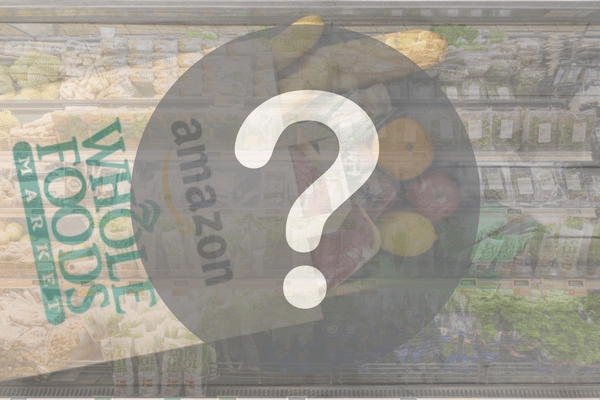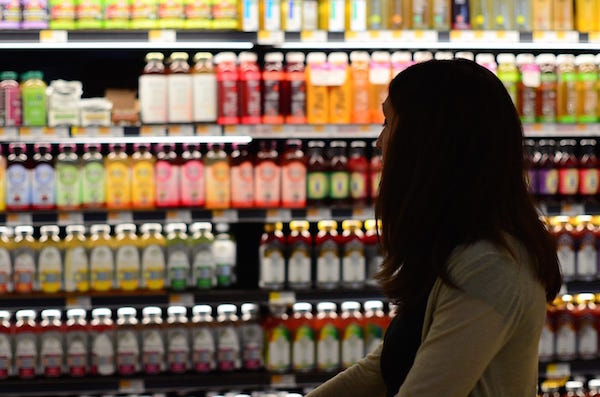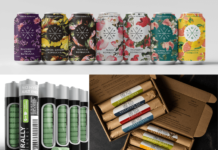
Technological disruption is present in all industries, and the food industry is no exception. Amazon and other companies with large technology platforms are changing the nature of how food companies connect with consumers and what products are available online. And, the amount of consumers purchasing food online is increasing, with some predicting that 70% of all consumers will purchase at least some of their food online by 2024.
However, going online may not make sense for all products. Due to the physical nature of food, many types of products are cost prohibitive to ship to individual consumers via an e-commerce site. This includes heavy products, products that spoil easily and products that need extensive temperature controls. Even if you have a direct to consumer or subscription business model facilitated by an online platform, the potential upside in terms of margins might be eaten away if the product is not a good fit for that platform.
Customer expectations are also a factor in choosing what and where to sell online. In our podcast this week, Shari Leidich from Know Brainer has found that their individual shelf-stable creamer products have had the most traction with consumers when sold online through Amazon and their own online store. However their multi-serve product is more of a conventional grocery item, necessitating launching that product in physical grocery stores. In the end, they placed their products where their customers expected to find them and where the economics of that placement made sense with their business model.
Another consideration when venturing into online sales is how the company will relate and respond to their customer. In a conventional grocery store scenario, the products that do well have brands that resonate well with their target consumer, getting off the shelves for (hopefully) repeat buys. It takes a lot of marketing spend to get to that point, but brand building is about forging lasting relationships that lead to long term financial sustainability. It can be more difficult to maintain the essential emotional and cultural connection to the consumer through your brand via an online platform, no matter how seamless the user experience.
Food businesses should know the role that online sales will play in their revenue stream and in their business model. Consumers are starting to become omnichannel in their food shopping expectations, and many food businesses will need to follow suit. Like most things in food entrepreneurship, it is best to let your customers lead the way, and if they expect to find you online, go online and conquer.
And now, our roundup of the best food and beverage finance news, events and resources from around the web…
Business Model Insights
- Four ‘must-haves’ for a successful online grocery experience (Food Navigator) – “Consumers are embracing online grocery shopping nearly twice as fast as predicted just a year ago, but there are still significant barriers that retailers must address to maximize their reach across channels, according to new Nielsen data. Retailers need to consider who is really shopping online and of those who aren’t, why not?”
- Moving freight to get more expensive for food companies this year (Reuters)
- 6 Steps to Better Manage Cash Flow (Investors Community Bank)

Raising Capital
- How to simplify the due diligence process and avoid purchase price adjustments (New Hope Media) – “Due diligence can be grueling for a company at any stage, but the key to making this process as painless as possible and getting the best value is to be organized and ready. If you start to maintain the information now for an anticipated transaction in the future, the level of disruption with respect to your normal duties should be minimized, and you can avoid due diligence becoming your full-time job. An important concept to remember is that the acquirer wants details on where the company has been, what the company owns and owes and where the company is going. Typically, an acquirer will request historical information for up to three years and projected information for at least one full 12-month period. Upfront transparency on issues and numbers is important to avoid a negative purchase price adjustment.”
- What Every Startup Must Do to Get Investor Ready (Entrepreneur)
- What a strong digital and e-commerce strategy tells investors about your brand (New Hope Media)
CPG/National Brands
- Optimizing CPG packaging for e-commerce (SmartBrief) – “Food and beverage firms are increasingly making the transition from selling solely in brick-and-mortar stores to bringing products to the e-commerce channel. The shift to e-commerce requires more than simply placing a food or beverage product in a shipping container and mailing it to the customer — the packaging must be sturdy yet light, and allow for the edible products to maintain their integrity. This can be a tall order for companies just getting started in the e-commerce space.”
- How Building A Brand Radically Helps Protect Investors (Forbes)
- Following up with Kashi’s Certified Transitional (to Organic) program (New Hope Media)

Market Trends
- 70% of Consumers Will Buy Groceries Online by 2024 (Progressive Grocer) – “In as few as five to seven years, 70 percent of consumers will be grocery shopping online. That’s according to the second-year findings of the ‘Digitally Engaged Food Shopper’ study by the Food Marketing Institute and Nielsen. According to the latest findings, the estimated $100 billion spend, which is equivalent to every U.S. household spending $850 online for food and beverage annually, will occur by 2022 or 2024. Key findings from this year’s study show that omnichannel shopping has passed the tipping point, with online grocery shopping on an accelerated path to industry saturation.”
- 10 natural products trends on the Expo West 2018 show floor (New Hope Media)
- Why Amazon’s Grocery Store May Not Be the Future of Retail (Harvard Business Review)
Farming and AgTech
- How To Sell Your Farmland (Agriculture.com) – “With another year of low commodity prices, there is more pressure on farmers to sell land to recapitalize their balance sheets. If you find yourself in this position, you aren’t alone. Unfortunately, in this situation, the options for bringing land to the market aren’t ideal. In an ideal world, we would only sell farms to other farmers and we wouldn’t need investors. The current environment may make investors a key component to keeping your farm moving forward, and they can make great long-term partners as you expand your acres and operation.”
- Natural Products Expo West Trend: Regenerative Ag (New Hope Media)
- The Global Customer for American Agriculture (USDA blog)

Deals/M&A
- Food Industry M&A: Buying Innovation (The Food Institute) – “Food industry M&A hit a record total in 2017, reaching its highest point in over 15 years. Total deals for the year climbed to 591, moving well past 2016’s high of 505 deals, but still remaining under 1999’s record 813 deals. This trend of ‘buying innovation’ is one we have been seeing for a few years, as companies decided it may be easier to acquire an established artisanal or specialty brand, rather than try to create one of their own.”
- Hungry for growth: Food companies keep M&A on the menu in 2018 (FoodDive)
- Nutrition Capital Network News and Deals (Nutrition Capital Network)
Industry Events
- Good Food Expo (FamilyFarmed) – $, 3/24 – 3/25 in Chicago, IL
- National Good Food Network Conference (Wallace Center) – $, 3/27 – 3/30 in Albuquerque, NM
- Techstars Farm to Fork Accelerator Due (Techstars) – Free to apply, 4/8 online
- Financial Management Boot Camp (Food Finance Institute) – $, 4/9 – 4/10, 5/7 – 5/8 in Fairfield, IA
- Optimizing Business Models for Profitability & Growth (Food Finance Institute) – $, 4/19 – 4/20 in Saint Paul, MN
- Fearless Farm Finances Workshop (MOSES) – $, 4/27 in Wisconsin Dells, WI
- Furthering Food Safety Workshop (UW-Stout) – $, 5/24 – 5/26 in Menomonie, WI
- Project Nosh Pitch Slam (Project Nosh) – $, 6/4 – 6/5 in New York, NY
- BevNet Live (BevNet) – $, 6/6 – 6/7 in New York, NY
- Smart Food Expo (Various Orgs) – $, 6/25 – 6/27 in Chicago, IL






